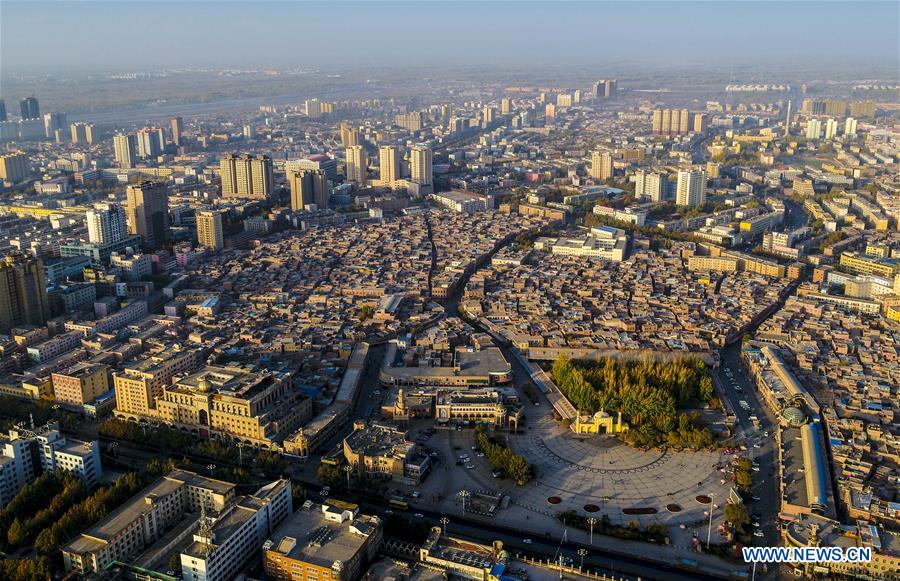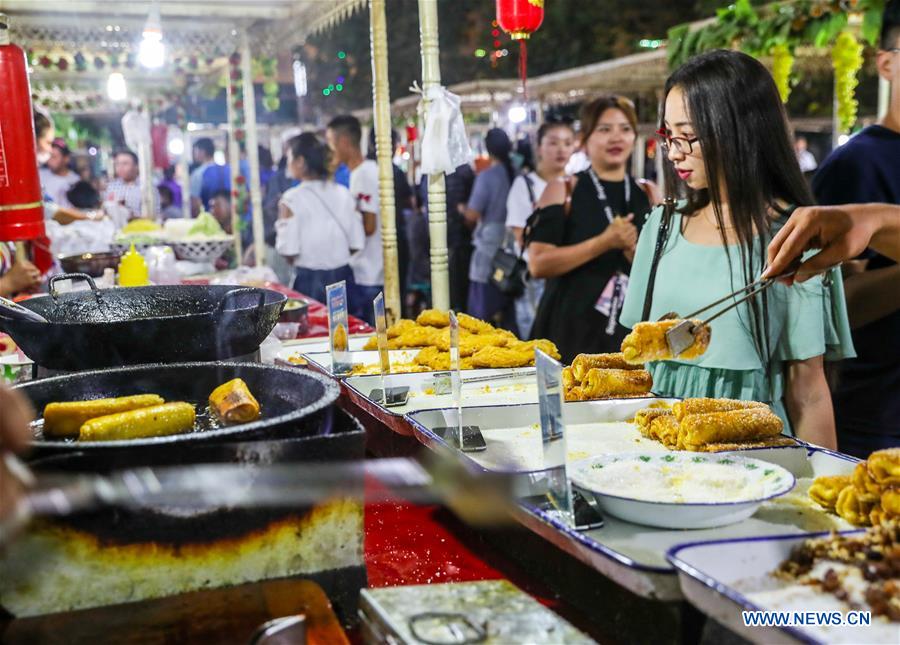Authentic Kashgar, Uygurs offer tourists their hearts, home
Around 220,000 people live in the Old Town area of Kashgar, and they are known for their laid-back attitude and bustling bazaars, which heave with local food, handicrafts, antiques and jewelry.
Welcome! The door is open
The Old Town of Kashgar invites you to explore, quite literally as it has no gates.
If you were to take a short walk from the main entrance east, past the shops selling naan bread, copperware and Atlas silk, you will soon come across Guli, who will most likely be encouraging passersby to try on Uygur hats.
Aerial photo taken on Nov. 7, 2017 shows ancient and new town of Kashgar, northwest China's Xinjiang Uygur Autonomous Region. [Photo/Xinhua]
Born and raised in Old Town, Guli knows the place like the back of her hand. It is, she says, for this reason that she wants to share her hometown with the rest of the world.
Ten years ago she was a tour guide. When she led tourists around the maze of streets, some were curious about what life was like in those winding alleys. So, she said, she often took them to her own house, and treated them to real Xinjiang hospitality.
"The charm of the Old Town lies in the things we, as locals, take for granted -- the greenery in the yard, a cup of tea in the sun, the patterns of the carpet, or wooden decorations," said Guli.
Then an idea popped into her head: "Why not offer this authentic experience to visitors?"
"We Xinjiang people are very hospitable. When there are guests from afar, we always invite them to our homes and treat them with a big meal," said Guli, "We can also invite tourists to our homes so that they can have a real experience of the life here."
However, starting a business as a woman, while not without precedent, was not going to be an easy task. She didn't turn her plan into reality until she had got married and had kids. When her kids had started kindergarten, and renovation work on Old Town had almost finished, she felt the time was right to make her dream become a reality.
"In the past there was no tap water or plumbing in the houses. Now the standard of living has improved," said Guli.
With the help of her family, the hostess has created a welcoming environment for her visitors. In the yard, Atlas silk and traditional Uygur floral dresses hang on the walls. Her visitors can drink tea at small tables that overflow with walnuts, almonds, dried grapes, red dates and other light snacks.
Guli hires local dancers and a band to perform while the guests enjoy their tea. She also makes it clear that her visitors can join in the fun, too. Guli is an excellent dancer herself and has a wicked sense of humor. When she teaches Uygur dance moves she compares the neck turning and wrist revolving to a polite marriage refusal.
"I have a house. I have money. Please marry me!" Guli bursts into fits of laughter as she explains the male dancers' hand-to-chest movements.
"My father says no. My mother says no. And I also say no," said Guli of the women's movements, elegantly shaking her head.
Another treat for the guests is the home-made Xinjiang food -- pilaf, meat skewers, noodles, and samsa, a meaty bun. When night falls, people feast, sing, and even dance in the street.
A tourist selects food at a food stall in Kashgar, northwest China's Xinjiang Uygur Autonomous Region, Aug. 6, 2018. [Photo/Xinhua]
"It's as relaxing as visiting a very good friend," said Jin Qianwen, from Zhejiang Province, east China, "I might not have noticed the color of the window frame or the shape of the pillar if I just walked by. But after drinking tea with the hostess I've learned so many interesting things about the house and the culture here."
"Traveling is much more than taking photos. It's about getting to know the life of a place," she added.



